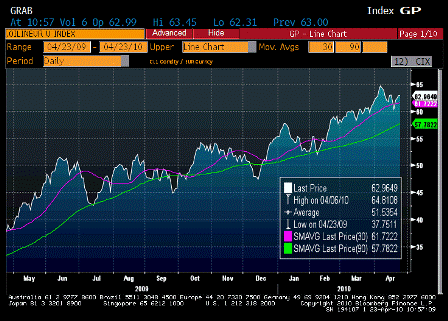The size Greece ‘needed’ implies the others will need numbers beyond euro zone capacity, especially as the Greek deal used up euro zone capacity.
So this means Greece is the last rescue possible- the rest are on there own.
They wanted to stop the contagion, but that would have had to be done by showing they could save Greece without weakening themselves, and in a manner that shows they can help any and all.
They didn’t do that.
Instead they showed the effort necessary save Greece was so large that they don’t have the means to save anyone larger than Greece.
So now they are performing without a net.
And, as Marshall put it, the austerity measures are likely to increase rather than decrease deficits, making it all that much worse.
This euro zone problem is not going away.
From: Marshall
Sent: Sunday, May 02, 2010 8:23 PM
Well, it’s early, but euro is weakening again in early FX trading in Australia and US bonds are much stronger. Still early, but that’s very telling. And frankly, as good as the data has “looked” in the US, I don’t believe it myself. The gasoline consumption numbers in California that I saw last week were terrible and California is a good lead indicator. I started getting bullish on the equity markets (or at least less bearish) in Jan. 2009 when the California housing data started to pick up. And regardless of whether Greece is “saved”, the events of the past few weeks have been profoundly DEFLATIONARY for the entire euro zone. How can the global economy not be affected by the downturn in the second most important economic bloc in the world?
Combine that with a legal and political attack against Wall Street that gives every indication of INTENSIFYING and I think you have to say that things are definitely changing for the worst at the margin.
Hey, the data post the Bear Stearns rescue looked pretty good for a while as well until the whole foundation came tumbling down. The termites never look like their making much progress until the structure suddenly collapses.
Then again, I’m usually more bearish than Warren, so take what I say with a grain of salt.


